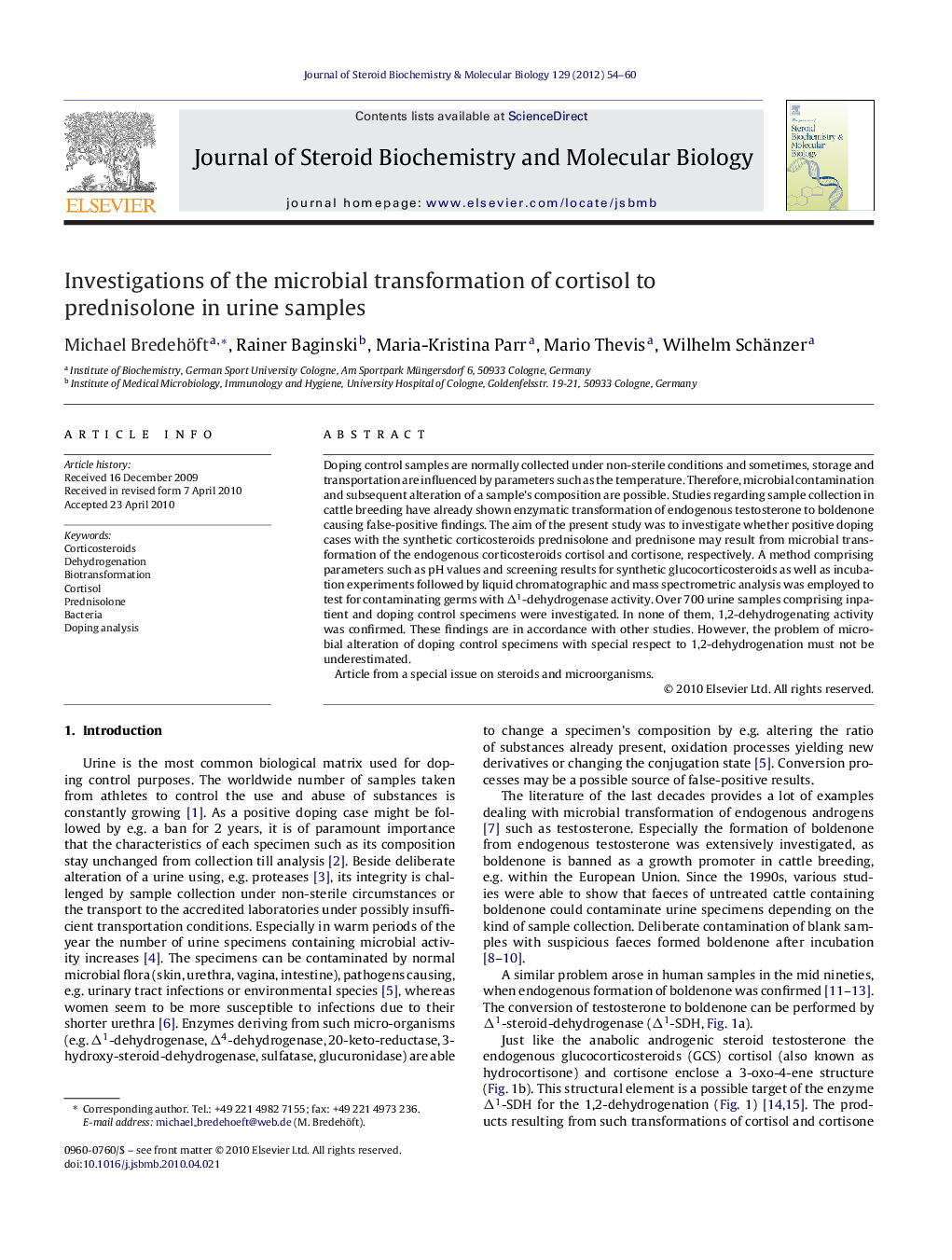| Article ID | Journal | Published Year | Pages | File Type |
|---|---|---|---|---|
| 1991748 | The Journal of Steroid Biochemistry and Molecular Biology | 2012 | 7 Pages |
Doping control samples are normally collected under non-sterile conditions and sometimes, storage and transportation are influenced by parameters such as the temperature. Therefore, microbial contamination and subsequent alteration of a sample's composition are possible. Studies regarding sample collection in cattle breeding have already shown enzymatic transformation of endogenous testosterone to boldenone causing false-positive findings. The aim of the present study was to investigate whether positive doping cases with the synthetic corticosteroids prednisolone and prednisone may result from microbial transformation of the endogenous corticosteroids cortisol and cortisone, respectively. A method comprising parameters such as pH values and screening results for synthetic glucocorticosteroids as well as incubation experiments followed by liquid chromatographic and mass spectrometric analysis was employed to test for contaminating germs with Δ1-dehydrogenase activity. Over 700 urine samples comprising inpatient and doping control specimens were investigated. In none of them, 1,2-dehydrogenating activity was confirmed. These findings are in accordance with other studies. However, the problem of microbial alteration of doping control specimens with special respect to 1,2-dehydrogenation must not be underestimated.Article from a special issue on steroids and microorganisms.
